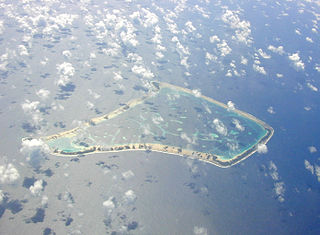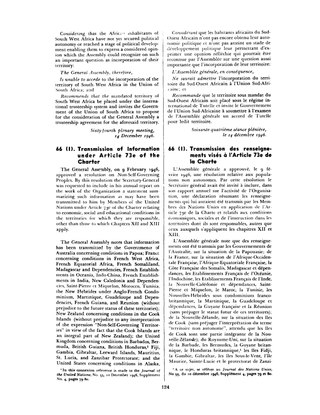Related Research Articles

Tokelau is a dependent territory of New Zealand in the southern Pacific Ocean. It consists of three tropical coral atolls: Atafu, Nukunonu, and Fakaofo. They have a combined land area of 10 km2 (4 sq mi). The capital rotates yearly among the three atolls. In addition to these three, Swains Island, which forms part of the same archipelago, is the subject of an ongoing territorial dispute; it is currently administered by the United States as part of American Samoa. Tokelau lies north of the Samoan Islands, east of Tuvalu, south of the Phoenix Islands, southwest of the more distant Line Islands, and northwest of the Cook Islands.

Atafu, formerly known as the Duke of York Group, is a group of 52 coral islets within Tokelau in the south Pacific Ocean, 500 kilometres north of Samoa. With a land area of 2.5 square kilometres, it is the smallest of the three islands that constitute Tokelau. It is an atoll and surrounds a central lagoon, which covers some 15 km2 (5.8 sq mi). The atoll lies some 800 kilometres south of the equator at 8° 35' South, 172° 30' West.

Fakaofo, formerly known as Bowditch Island, is a South Pacific Ocean atoll located in the Tokelau Group. The actual land area is only about 3 km2, consisting of islets on a coral reef surrounding a central lagoon of some 45 km2. According to the 2006 census 483 people officially live on Fakaofo. Of those present 70% belong to the Congregational Church and 22% to the Catholic Church.

The politics of Tokelau takes place within a framework of a parliamentary representative democratic dependency. The head of state of Tokelau is King Charles III in right of his Realm of New Zealand, who is represented by an Administrator. The monarch is hereditary, the Administrator is appointed by the New Zealand Minister of Foreign Affairs and Trade.

Swains Island is a remote coral atoll in the Tokelau Islands in the South Pacific Ocean. The island is the subject of an ongoing territorial dispute between Tokelau and the United States, which has administered it as part of American Samoa since 1925. Privately owned by the family of Eli Hutchinson Jennings since 1856, Swains Island was used as a copra plantation until 1967. It has not been permanently inhabited since 2008 but has often been visited by members of the Jennings family, scientific researchers, and amateur radio operators.

Chapter XI of the United Nations Charter defines a non-self-governing territory (NSGT) as a territory "whose people have not yet attained a full measure of self-government". In practice, an NSGT is a territory deemed by the United Nations General Assembly (UNGA) to be "non-self-governing". Chapter XI of the UN Charter also includes a "Declaration on Non-Self-Governing Territories" that the interests of the occupants of dependent territories are paramount and requires member states of the United Nations in control of such territories to submit annual information reports concerning the development of those territories. Since 1946, the UNGA has maintained a list of non-self governing territories under member states' control. Since its inception, dozens of territories have been removed from the list, typically when they attained independence or internal self-government, while other territories have been added as new administering countries joined the United Nations or the General Assembly reassessed the status of certain territories.

The Realm of New Zealand consists of the entire area in which the monarch of New Zealand functions as head of state. The realm is not a federation; it is a collection of states and territories united under its monarch. New Zealand is an independent and sovereign state. It has one Antarctic territorial claim, one dependent territory (Tokelau), and two associated states. The Realm of New Zealand encompasses the three autonomous jurisdictions of New Zealand, the Cook Islands, and Niue.

Pio Iosefo Tuia has been Ulu o Tokelau, head of government of Tokelau, six times. The position of ulu rotates annually between the three faipule, who are elected for terms lasting three years. Tuia served as ulu for the sixth time in February 2011. He was also the faipule of Nukunonu and a member of the Council for the Ongoing Government of Tokelau.

The chief justice of New Zealand is the head of the New Zealand judiciary, and presides over the Supreme Court of New Zealand. The chief justice of New Zealand is also the chief justice of Tokelau. Before the establishment of the Supreme Court in 2004, the chief justice was the presiding judge in the High Court of New Zealand, and was also ex officio a member of the Court of Appeal of New Zealand. The office is established by the Senior Courts Act 2016, which describes the chief justice as "senior to all other judges".

The Administrator of Tokelau is an official of the New Zealand Government, responsible for supervising the government of the dependent territory of Tokelau.

Tokelau, a dependent territory of New Zealand, adopted an official flag in 2009. Previously, the flag of New Zealand was used as the official flag for Tokelau.

Kuresa Nasau is a Tokelauan politician who has served as head of government five times and as faipule of Atafu.

The General Fono is the parliament of Tokelau. It has 20 members, representing the 3 atolls. Elections are held every three years.

Parliamentary elections were held in Tokelau on 17 January, 18 January and 19 January 2008 to elect the 20 members of the General Fono. The elections saw Kolouei O'Brien replaced as faipule of Fakaofo by Foua Toloa.

The following outline is provided as an overview of and topical guide to Tokelau:

The Council for the Ongoing Government of Tokelau is the executive body in Tokelau. It serves as the governing organization for Tokelau when the General Fono is not in session. The council has six members, consisting of the faipule (leader) and pulenuku of each of the three atolls, Fakaofo, Nukunonu, and Atafu. It was established in November 2003, replacing the Council of Faipule, which had been established in 1993 and had three members – the three faipule.

Foua Toloa was a Tokelauan politician who served as the Head of the Government of Tokelau, or Ulu, from 21 February 2009, to 21 February 2010. He was a member of the Council for the Ongoing Government of Tokelau, and was a faipule on Fakaofo. As the office of Ulu rotates on an annual basis, Toloa resumed office on 21 February 2011. For a time in 2011-2012, he was also Tokelau's minister for Finance, Telecommunication, Energy and Transport. He died in California in 2015.

Kristopher John Faafoi is a former New Zealand Labour Party politician. He became the Member of Parliament for the Mana electorate in 2010. He did not contest the seat as an electorate MP in 2020 but continued as a list MP. He held a number of ministerial portfolios in the Sixth Labour Government from 2017, until he announced his retirement from politics in June 2022.
Aliki Kelihiano Kalolo, is a Tokelauan politician who served as the Head of the Government of Tokelau, or Ulu, from February 2012 to March 2013, again from 12 March 2019 to 9 March 2020, and again from 8 March 2021. He is a member of the Council for the Ongoing Government of Tokelau, serving as Minister for Foreign Affairs, Education, Economic Development, Natural Resources and the Environment, prior to and then simultaneously to his leadership of the government. The office of Ulu rotates on an annual basis between the faipule of each of the country's three atolls; Kalolo, as faipule of Atafu, took office as Ulu for the first time in 2012.

General elections were held in Tokelau on 23 January 2020.
References
- ↑ "GOVERNANCE OF TOKELAU 2008". Government of Tokelau. Archived from the original on 13 April 2010.
- ↑ "General election results for Tokelau announced". RNZ. 31 January 2020. Retrieved 26 November 2022.